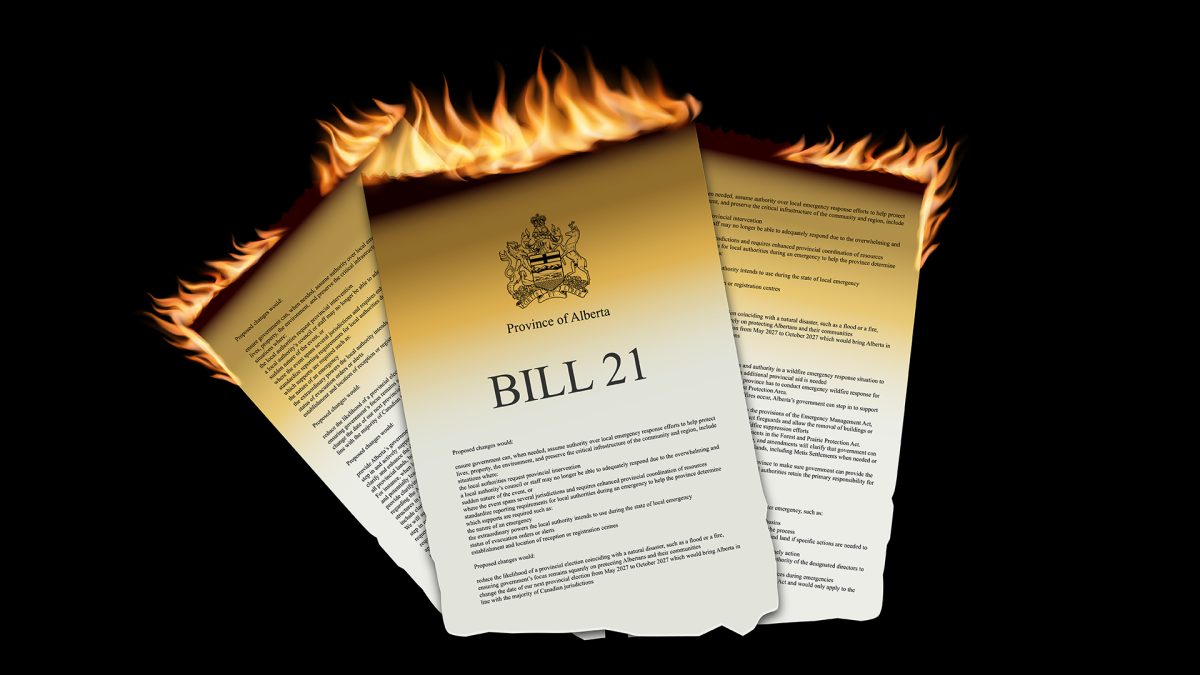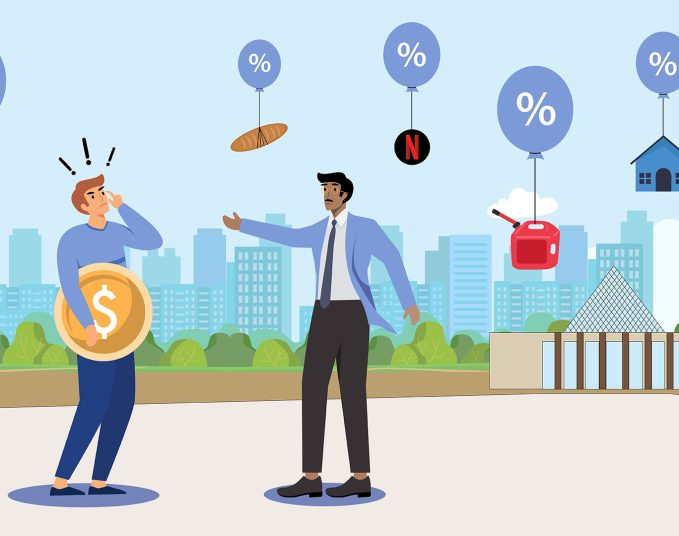Danielle Smith and the UCP need a better PR Team.
If you’ve been keeping up with the news lately, you already know our provincial government has been on a marketing mishap grand tour, flubbing one announcement after another. The first — Bill 18 — earned accusations that the provincial government has been speaking from both sides of its mouth on the matter of jurisdictional overreach. The second — Bill 20 — earned Alberta all manner of comparisons to authoritarians (including a fictional one penned by yours truly). Now there’s Bill 21 — the Emergency Statutes Amendment Act, 2024 — and, as more accusations of governance-by-overreach roll in, it appears the UCP isn’t sticking the landing on this one, either.
Among the things earning the UCP condemnation in editorial pages and comment sections across Alberta is the omnibus bill’s move to push back the date of provincial elections. The bill, which still needs to pass in the legislature, would move elections from May to October beginning with the 2027 provincial election. Conveniently, this would also add another 20 weeks to Ms. Smith’s term as premier.
Concerns of democratic misconduct aside (and, to be clear, I don’t think that’s what this particular aspect of the bill is actually about), this is yet another failed opportunity from the UCP’s communications team.
Smith and her government have tried to frame this aspect of Bill 21 as a move to protect democracy in the face of ever more frequent and volatile wildfires. They say that by moving the election to October, there’s less likelihood that an emergency response would interfere with campaigning and vice versa.
It’s a smart, albeit poorly executed (more on this later), PR move on the heels of so much heat from critics. But here’s the thing: it’s not just a smart way to sell a bill, their reasoning — at least regarding this portion of the bill — is actually pretty sound.
Wildfires, while a longstanding part of life within Alberta’s boreal-forested boundary, are increasing in intensity and volatility. The number of fires has fluctuated over the decades Alberta’s been recording fire activity (and is actually a good deal lower than in the 1980s), but the scope of fires has grown. Last year, Alberta saw more of its geography scorched than any other period since recording began. A 2020 study by the Fraser Institute — hardly a tree-hugging think tank — also shows that while narratives of Canada being a fiery hellscape across the board are widely exaggerated, here in Alberta and neighbouring British Columbia, things actually are getting more severe.
This new normal, wherein Albertans are either evacuating or being choked out by wildfire smoke seemingly each and every summer, presents a real danger to people, communities and, yes, even the democratic process.
Last year, during the May, 2023 provincial election, wildfires displaced 24,000 Albertans. Almost exactly a year later, much of Fort McMurray has been evacuated. In May of 2016, that same community was razed and in May of 2011, Slave Lake was evacuated in response to wildfires. If either of those emergencies had occurred just a year earlier or later, provincial electioneering efforts could have been significantly impacted.
If this trend continues — and the UCP’s messaging suggests they believe it will — then tens of thousands of Albertans could face barriers to casting a vote, or, in the worst scenarios, not exercise their franchise at all.
So, you’ll hear no qualms from me about moving the election date to a less disaster-prone time of year. That much makes sense to me. But as a communicator, I have to take issue with the way that Smith and her team once again managed to break their ankles when trying to shop this message to the public.
If Smith and the UCP wanted to frame this as being about protecting democracy, why on earth wouldn’t they have moved the election date up instead of back? I’m not talking about following the advice of opposition leader Rachel Notley, who suggested the more democratic move would be to hold the election in October of 2026 — that, too, seems dubious to me — but rather moving the date to April of 2027.
An April election would considerably reduce the risk of wildfire displacements, would be reasonably warm enough for campaigning and voting, and would only skew term limits by a month or so, thereby dampening the criticism that this government is merely trying, once again, to afford itself more power.
But a deft marketer Smith (or those in charge of her PR) is not. They fumbled this straightforward communications slam-dunk, too. Most notably, when Smith made comments suggesting the decision wasn’t as much about safeguarding access to the ballot box as it was about addressing the inconveniences of trying to manage a campaign and govern through an emergency simultaneously.
“It was bizarre for ministers and other candidates to have to go through these motions while so much of Alberta was burning and so many Albertans were out of their homes,” Smith said in a statement published by The Edmonton Journal on May 9.
Among the motions she’s talking about are requirements that during elections, candidates (particularly incumbents) not use government resources (like official communications during an emergency) for campaign purposes. She continued on to say that during the 2023 state of emergency, UCP officials weren’t able to access government devices and therefore risked fines from Elections Alberta if their messaging was deemed to have strayed too far into the realm of politicking.
“I don’t think any minister or MLA or candidate or premier for that matter would willingly repeat this experience,” she said.
When a government’s messaging is this consistently misaligned, you have to wonder: is this just a case of a bad PR team, or is it a sign of a government that simply doesn’t care whether people like what they’re doing?
Savvy AF. Blunt AF. Edmonton AF.




